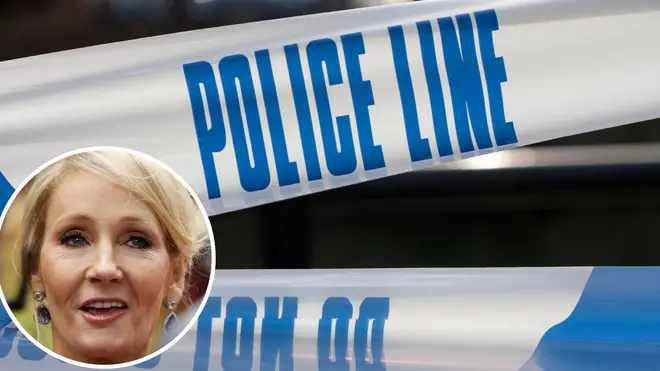
Clive Bull 1am - 4am
29 March 2022, 08:27 | Updated: 29 March 2022, 08:41

More than half of all police forces would record a suspected rapist as female if they no longer identified with their male birth sex, an LBC investigation has found.
A total of 24 of 47 forces asked said that if somebody was arrested or charged with rape or sexual assault, the official record would show their preferred gender identity, rather than their sex at birth. Campaigners say the stance "puts the feelings of a perpetrator of a sexual crime" ahead of those of the victim.
The Home Office Counting Rules, which provide a national standard for the recording of crime, do not contain any advice on the recording of sex or gender, so practices differ at each individual force.
LBC’s findings come as Police Scotland launched a review of their policy after an outcry from women's organisations.
Read more: Oscars organisers condemn Will Smith over Chris Rock slap amid calls for him to lose award
Read more: Partygate fines to be issued by police within 'within hours'
When it was revealed last December that they would record rapists by their preferred identity, Harry Potter author JK Rowling tweeted: "War is Peace. Freedom is Slavery. Ignorance is Strength. The Penised Individual Who Raped You Is a Woman."
A total of 39 of the 47 forces replied to the information request.
Although most forces LBC asked said they would record the preferred gender of somebody arrested or charged, regardless of the crime, a number had different policies.
West Midlands and Kent Police said they would record both the "perceived" and self-identified gender of the person.
Other forces, such as Cumbria Constabulary, Gloucestershire Constabulary, and West Yorkshire Police said although they would usually record the preferred gender identity of an individual, rape would be an exception, as the legal definition requires a penis.
Read more: Roman Abramovich 'lost sight after poisoning' during Ukraine peace talks
The Sexual Offences Act 2003 says a person commits rape if "he intentionally penetrates the vagina, anus or mouth of another person with his penis" without consent.
Richard Garside, director of the Centre for Crime and Justice Studies, said: “Rape is defined in law as an offence that only males can commit.
"It makes absolutely no sense for the police to corrupt and undermine important national statistics by wrongly recording male crimes as female crimes."
However, some trans rights campaigners have pointed out that rape is not a purely male crime. So-called Joint Enterprise laws allow accomplices of crimes to be charged with the same offences as the actual perpetrators.
As such, it is not unheard of for women to be charged with rape. Writer and campaigner Jane Fae said: "Rape doesn't require a penis. In statute it refers to the use of a penis, however there is a thing known as joint enterprise, or accomplice rape.
"And the figures I'm interested in are not police charging figures, the ONS [Office for National Statistics] says they're not official statistics.
"If you look at the conviction rate for women for rape over the last 10/15years, it is stable at about 5 to 7 cases a year. And these are not cases of trans women."
Concerns have also been raised about the impact of these police recording policies on victims of crime. Maya Forstater, Executive Director of campaign group Sex Matters, said: "The most shocking thing about all of this is that the police will take the feelings of a perpetrator of a sexual crime ahead of the reality of the victim.
"This could be about domestic abuse, it could concern cases of child sexual abuse. Imagine being the victim of that kind of crime and hearing the police and the courts calling your abuser a woman when you know that the person that assaulted you was a man. The police just shouldn’t be doing this."
But trans people too have experienced discrimination at the hands of police forces. Jane Fae said: “"I have dealt with cases where police forces have acted horrendously towards people. I've come across trans women who are well transitioned, and I've had police forces insist on strip searching them and putting men in the room to do it, and that's just obscene."
The College of Policing provides official guidance on the treatment of transgender detainees in police custody precisely to try and prevent such instances from occurring. But absent any official guidance on the recording of crime, the different practices of individual forces are likely to continue to stir up controversy.